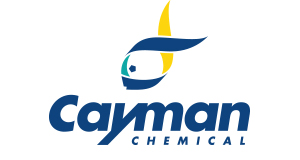Malate Dehydrogenase 1 (human, recombinant)
Malate Dehydrogenase 1 (human, recombinant)
Artikelnummer
CAY40110-100
Verpackungseinheit
100 µg
Hersteller
Cayman Chemical
Verfügbarkeit:
wird geladen...
Preis wird geladen...
Formulation: 25 mM HEPES, pH 7.5, with 150 mM sodium chloride, 5% glycerol, and 1 mM mercaptoethanol
Purity: ≥85% estimated by SDS-PAGE
Formula Weight: 0
Shelf life (days): 365
Notes: Malate dehydrogenase 1 (MDH1) is an NAD-dependent dehydrogenase and oxidoreductase.{51751} It is composed of an N-terminal NAD binding domain and a C-terminal substrate binding domain that reversibly catalyzes the conversion of malate to oxaloacetate in the cytosol.{51751,51752} MDH1 functions as a homodimer and is ubiquitously expressed in the human body, functioning as a key metabolic enzyme in glycolysis and the urea acid cycle.{51751} MDH1 supports increased rates of cancer glycolysis by serving as both a carbon and NAD supplier in lieu of, and in addition to, lactate dehydrogenase (LDH).{51753} MDH1 expression is amplified in a variety of cancers, including lung squamous cell carcinoma, diffuse B cell lymphoma, as well as bladder and pancreatic cancers, and its higher expression is negatively correlated with patient survival. Oncogenic K-Ras-induced glycosylation of MDH1, but not the mitochondrial MDH2 isoform, stabilizes the substrate-binding domain, increases MDH1 activity, and increases proliferation in pancreatic cancer cells.{51754} MDH1 activity is increased in brain homogenates from patients with early Alzheimer’s disease compared to brain homogenates from age-matched individuals without Alzheimer's disease.{68420} Cayman’s Malate Dehydrogenase 1 (human, recombinant) protein can be used for ELISA, enzyme assay, and Western blot (WB) applications.
Purity: ≥85% estimated by SDS-PAGE
Formula Weight: 0
Shelf life (days): 365
Notes: Malate dehydrogenase 1 (MDH1) is an NAD-dependent dehydrogenase and oxidoreductase.{51751} It is composed of an N-terminal NAD binding domain and a C-terminal substrate binding domain that reversibly catalyzes the conversion of malate to oxaloacetate in the cytosol.{51751,51752} MDH1 functions as a homodimer and is ubiquitously expressed in the human body, functioning as a key metabolic enzyme in glycolysis and the urea acid cycle.{51751} MDH1 supports increased rates of cancer glycolysis by serving as both a carbon and NAD supplier in lieu of, and in addition to, lactate dehydrogenase (LDH).{51753} MDH1 expression is amplified in a variety of cancers, including lung squamous cell carcinoma, diffuse B cell lymphoma, as well as bladder and pancreatic cancers, and its higher expression is negatively correlated with patient survival. Oncogenic K-Ras-induced glycosylation of MDH1, but not the mitochondrial MDH2 isoform, stabilizes the substrate-binding domain, increases MDH1 activity, and increases proliferation in pancreatic cancer cells.{51754} MDH1 activity is increased in brain homogenates from patients with early Alzheimer’s disease compared to brain homogenates from age-matched individuals without Alzheimer's disease.{68420} Cayman’s Malate Dehydrogenase 1 (human, recombinant) protein can be used for ELISA, enzyme assay, and Western blot (WB) applications.

 English
English








